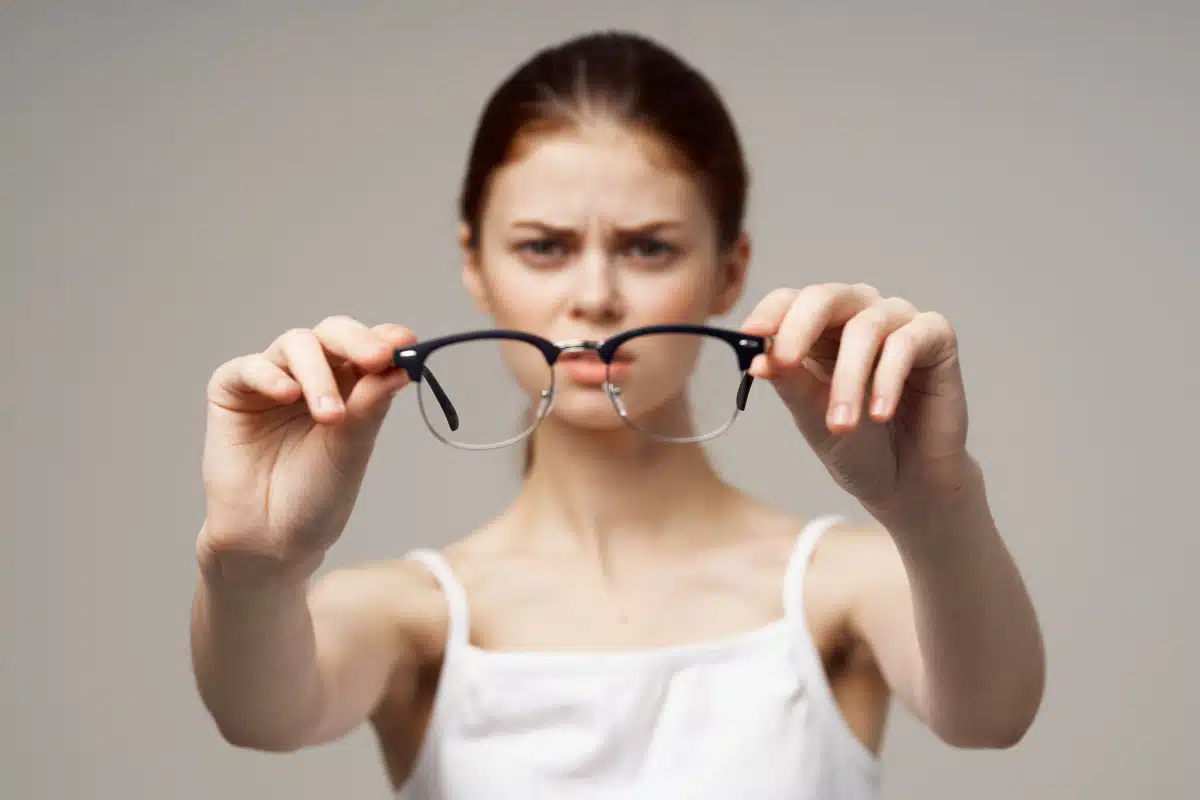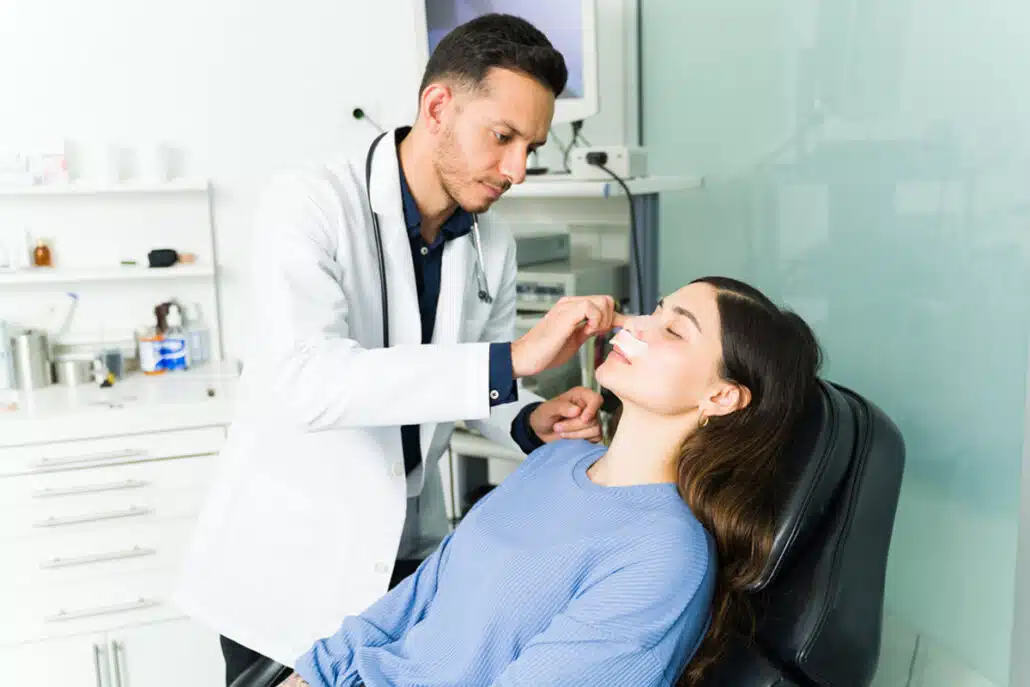Adapting to Life Post-Rhinoplasty: Tips for Glasses Wearers

Have you ever wondered how wearing glasses might be impacted after undergoing rhinoplasty? Rhinoplasty, often referred to as a “nose job,” could change your facial appearance and how your glasses fit. This article discusses the challenges glasses wearers face post-rhinoplasty and offers practical strategies for adapting to the new changes while ensuring optimal vision.
Understanding the Challenges of Wearing Glasses Post-Rhinoplasty
Adjusting to wearing glasses after rhinoplasty can be a daunting task. The process needs patience and a whole lot of adjustments to ensure comfort to the altered nasal region. The new shape and sensitivity of the nose might not play well with your typical pair of glasses, potentially leading to discomfort or even pain.
Preserving your vision while caring for your post-surgical nose requires a strategic approach. For instance, glasses are expected to rest on the nasal bridge, an area which, post-rhinoplasty, is often tender and vulnerable. Unnecessary pressure might aggravate the sensitivity against the healing skin.
Risk of Using Glasses Immediately after Rhinoplasty Surgery
Moreover, there is a risk of altering the structure of the reshaped nasal bones. Continuous strain may lead to indentations, change the shape, or worse, permanent damage to the newly operated nasal area. This is a significant challenge patients face when wearing glasses after the surgery.
In rare cases, some glasses even increase the risk of causing infections due to constant rubbing against the nasal structures. It’s essential to understand these challenges and consult your surgeon and an optician who can guide you to find a solution that suits your new needs. This will help navigate the issue at hand to ensure that your healing is well underway, and your vision remains clear post-rhinoplasty.
The Impact of Rhinoplasty on the Nasal Bones
Rhinoplasty is a surgical procedure used to reshape the nose and affects the nasal bones issues significantly. An alteration in the structure of the bones is often required in case of a broken nose or to achieve the desired aesthetic result. This change in the structure does have implications for eyewear.
The procedure causes swelling and sensitivity in the nasal area, including the bridge, that may last for a few weeks. As a result, eyeglass wearers may experience discomfort as the weight and pressure of glasses could potentially worsen these symptoms.
In addition, the shifted position of nasal bones could change the way glasses sit on the nose. Hence, your old pair of traditional glasses might not fit properly post-surgery.
What is the optimal time to begin wearing glasses after Rhinoplasty?
It’s best to wait at least one month before wearing glasses after a rhinoplasty procedure. During this time, you should allow yourself to have a proper healing and adjust to the new nose shape. This will also help reduce the risk of any discomfort like direct pressure or pain when wearing glasses.
After the surgery, patients use a nasal splint to support the area post-surgery. This splint will be placed on the bridge of your nose and can allow you to wear glasses during the first week of the procedure. It is crucial to remember that this should only be used with the consent of your surgeon and optometrist as it could lead to further complications if not used correctly.

Tips to Use Glasses After Nose Surgery
Use contacts instead of glasses
One practical strategy for managing vision needs during this healing period involves using contact lenses instead of glasses, if feasible for the person and with the approval of their ophthalmologist. It provides the necessary clarity without causing discomfort or disruption to the healing nose.
Bridgeless glasses are also an option that can help reduce the risk of discomfort and disruption post rhinoplasty. These glasses feature frames with no bridge, eliminating the need to place pressure on the nose. The lenses are connected via adjustable arms, allowing for increased flexibility and a custom fit according to your needs.
Opt for changing your glasses design
Your glasses should not exert pressure on the nasal bridge, as this can interfere with the healing process. Selecting a design with adjustable nose pads is advisable, as it allows a greater level of customization for comfort. The changes in the structure of your nose can shift how your glasses sit on your face, possibly leading to discomfort and slippage. Opt for a pair of glasses with a lightweight frame and adjustable arms to ensure a snug, balanced fit.
If discomfort persists, you may consider using medical-grade tape to anchor the glasses onto your forehead. This relieves pressure on the nasal area while still allowing you to use your glasses when necessary.
Another strategy involves using lightweight glasses with a broader bridge. These spread the pressure across a wider portion of the nose, reducing the risk of causing injury. Also, make minor adjustments to your daily routines, like taking your glasses off when sleeping or in non-vision-critical situations to ease the pressure on your nasal bridge and facilitate uninterrupted healing.
Wear sunglasses to prevent squinting
Remember that protecting your eyes from excessive light is important during this period. A good pair of sunglasses can provide sufficient protection while outdoors and prevent squinting, which could potentially harm the healing nose.
Keeping sunglasses clean is equally crucial. Dust and debris in your eyes may cause irritation and complications.
Consider using optical magnifiers
Finally, for people who cannot wear glasses and are not suitable candidates for contacts, optical magnifiers can be a temporary solution. These can assist in tasks where precise vision is important, such as reading or using a computer.
Activities you can and can’t do with glasses post-rhinoplasty
After a nose job, your use of glasses may need to be modified during the healing process. Certain daily activities such as reading or computer work can still be done; however, the weight of glasses on your new nose should be minimized.
On the flip side, wearing glasses during intensive physical activity is not recommended, as contact could aggravate your healing nose. Your adjustment to post-surgery vision may require some patience.
How Rhinoplasty Affects Your Vision and How to Cope with It
After rhinoplasty, some people experience vision changes tied to swelling on the nose. The key to mitigating these changes is regular communication with your doctor. Post-operatively, some may initially see a little blurry due to the swelling, but this usually resolves itself as the swelling decreases.
Complications like double vision do pose a small risk due to the proximity of the nose and eyes but are rare. In such scenarios, prompt medical advice is necessary. To cope with sight changes, remember to rest your eyes frequently and avoid straining them.
While rhinoplasty may temporarily affect your vision, appropriate care and communication with your healthcare provider can help manage these changes successfully.
Consult with a Rhinoplasty Surgeon
Are you considering nasal surgery? If so, it is important to consult with a board-certified plastic surgeon like Dr. Daniel Becker who has extensive experience in nose reshaping procedures. During your consultation, Dr. Becker can answer any questions you may have about the recovery period and possible side effects of rhinoplasty. Contact us today to learn more!